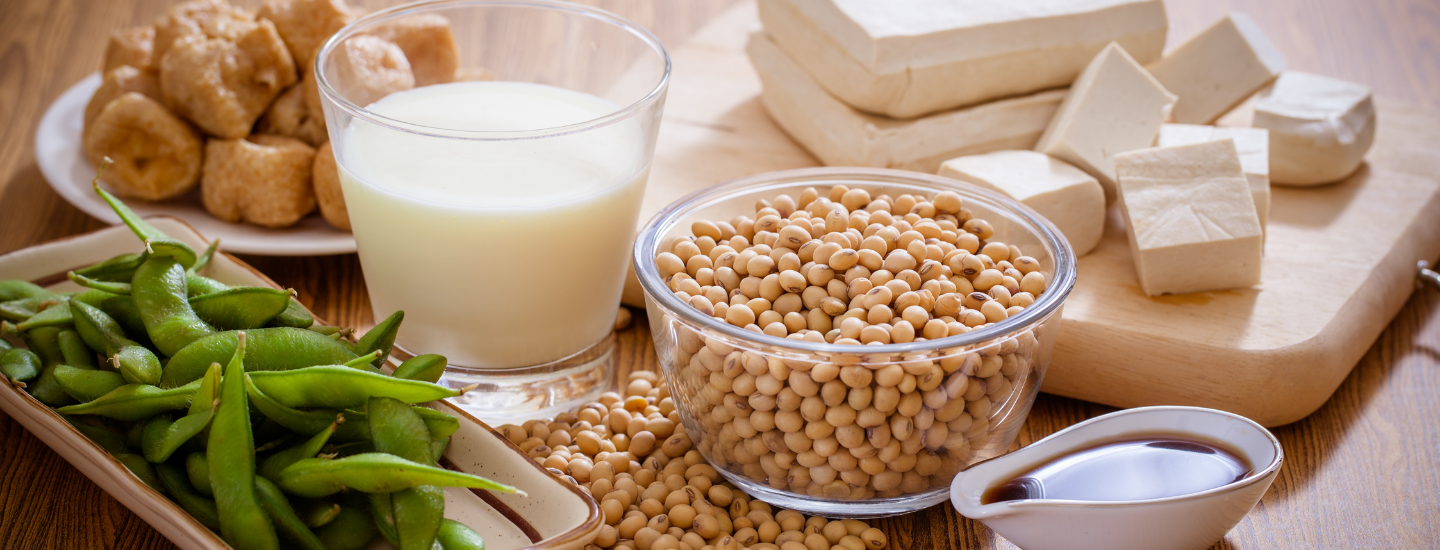If you are one of the many women who has searched online for natural alternatives for managing menopause symptoms, chances are you found suggestions to include soy in your diet. Studies on soy’s effectiveness in offsetting symptoms (like hot flashes) are mixed, and many individuals may still have concern associated with how much soy is safe to consume. Here, we take a deeper dive on soy, and share five tips about adding soy to your diet in midlife and menopause.
Why soy?
Soy is a nutrient-dense source of plant-based protein that contains isoflavones (plant estrogens) also known as phytoestrogens. Isoflavones differ from the hormone estrogen, but they may provide some benefits of estrogen without the hormone’s sometimes potentially harmful side effects. Soybeans and soy products such as tofu, soymilk, miso and tempeh are the richest sources of isoflavones in the diet.
Will eating soy reduce my hot flashes?
Although isoflavones have no effect on estrogen levels, eating soy foods on a regular basis may help with menopause symptoms. Results of more than 15 studies conducted mostly in Western countries show that isoflavone supplements can reduce both the number and severity of hot flashes by 50%. We recommend taking a food-first approach here: aim for 2 to 3 servings of soy foods a day.
Will eating soy cause breast cancer?
In Asia, women who eat the most soy foods have a lower risk of breast cancer compared to women who eat little soy. Women with breast cancer who eat soy foods may be less likely to see their cancer return and are less likely to die from their disease. It is the position of the American Cancer Society, Canadian Cancer Society and World Cancer Research Fund International that women with breast cancer can safely consume soy foods.
Does it matter what type of soy foods I eat?
Aim for soy foods that are not heavily processed, as the phytoestrogen content is typically much lower in processed foods. Limit soy-based meat analogs when possible, and aim to have your food sources from foods such as a good quality tofu, edamame, or soy milk. Brands we like include WESTSOY for soy milk and Wildwood Organic for tofu.
How much soy should I eat in a day?
Many studies suggest that aiming for 2 to 3 servings of whole soy foods per day are beneficial. Suggested serving sizes include:
- Tofu as ½ cup (4 oz.)
- Edamame as ½ cup (cooked)
- Soymilk as 1 cup (8 oz.)
If you need more information about nutritional strategies and natural solutions to help manage your menopause symptoms, schedule a visit with a Gennev menopause specialist. They can support you with a personalized treatment plan designed to meet your specific needs.
The information on the Gennev site is never meant to replace the care of a qualified medical professional. Hormonal shifts throughout menopause can prompt a lot of changes in your body, and simply assuming something is “just menopause” can leave you vulnerable to other possible causes. Always consult with your physician or schedule an appointment with one of Gennev’s telemedicine doctors before beginning any new treatment or therapy.
